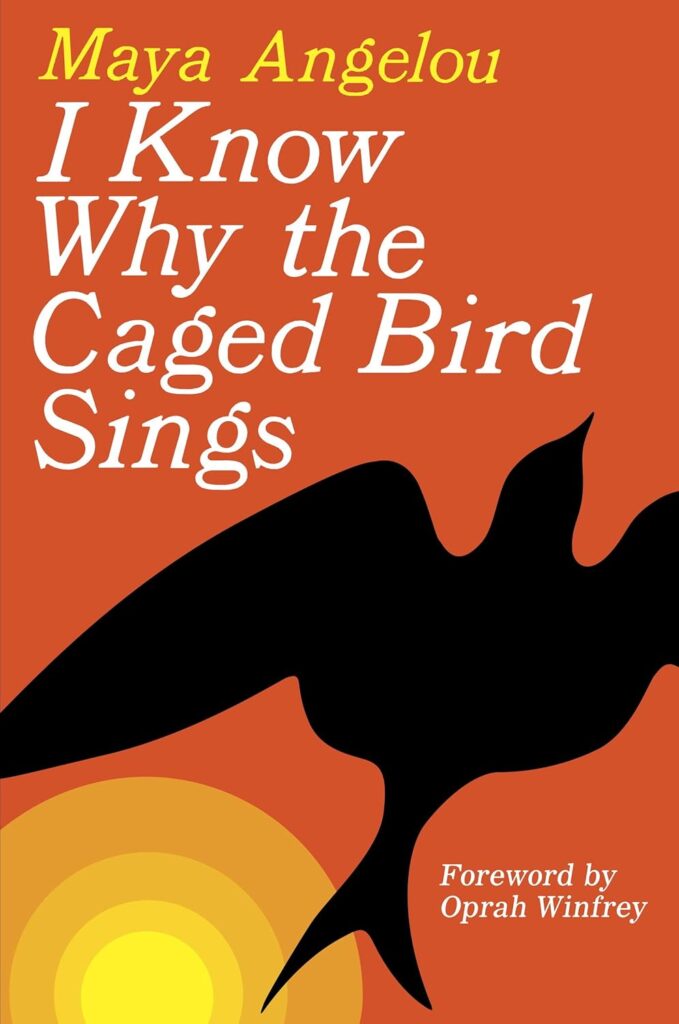I Know Why the Caged Bird Sings, the first of five volumes of autobiography by Maya Angelou (1928 – 2014), with a Foreword by Oprah Winfrey, is a joyous but painful memoir about the early life of a Black woman who was raised in the bigoted South.
Although both her parents were still living (but separated), Maya and her brother Bailey, one year older, were sent to live with their father’s mother in Stamps, Arkansas. The family—grandmother, a crippled uncle, and the two children lived in the back of their grandmother’s small grocery store. Though strict, their grandmother was a powerful influence on Maya, lessons that provided the strength and determination she would need in life.
As a young child Maya was aware of the unfairness Blacks suffered, especially in the South. People who worked in the cotton fields never made decent wages and were always in debt, but many didn’t have the money to relocate. The schools children attended were geared for Black children with the idea that when they graduated their “careers” would be as carpenters, farmers, handymen, masons, maids, cooks and babysitters. Maya was an exceptional student and far ahead of other children in her classes.
For a brief time she stayed with her mother in St. Louis, but that visit ended in tragedy. At a later time, she visited her father in California, but he had no sense of responsibility and Maya narrowly missed catastrophe while with him. Later, she again lived with her mother in St. Louis, attended school, and at the age of 16 had an unwanted pregnancy that changed her life forever.
I Know Why the Caged Bird Sings captured my heart. Things white people take for granted—freedom of where they will live, be educated, get medical care, etc. were denied to Blacks, especially in the South. Many of these issues have improved in recent years, but many prejudices still linger.
Angelou says it best: “The fact that the adult American Negro female emerges a formidable character is often met with amazement, distaste and even belligerence. It is seldom accepted as an inevitable outcome of the struggle won by survivors and deserves respect if not enthusiastic acceptance.” I think every American should read this memoir. It is an honest representation of life in the South even in our lifetime.


